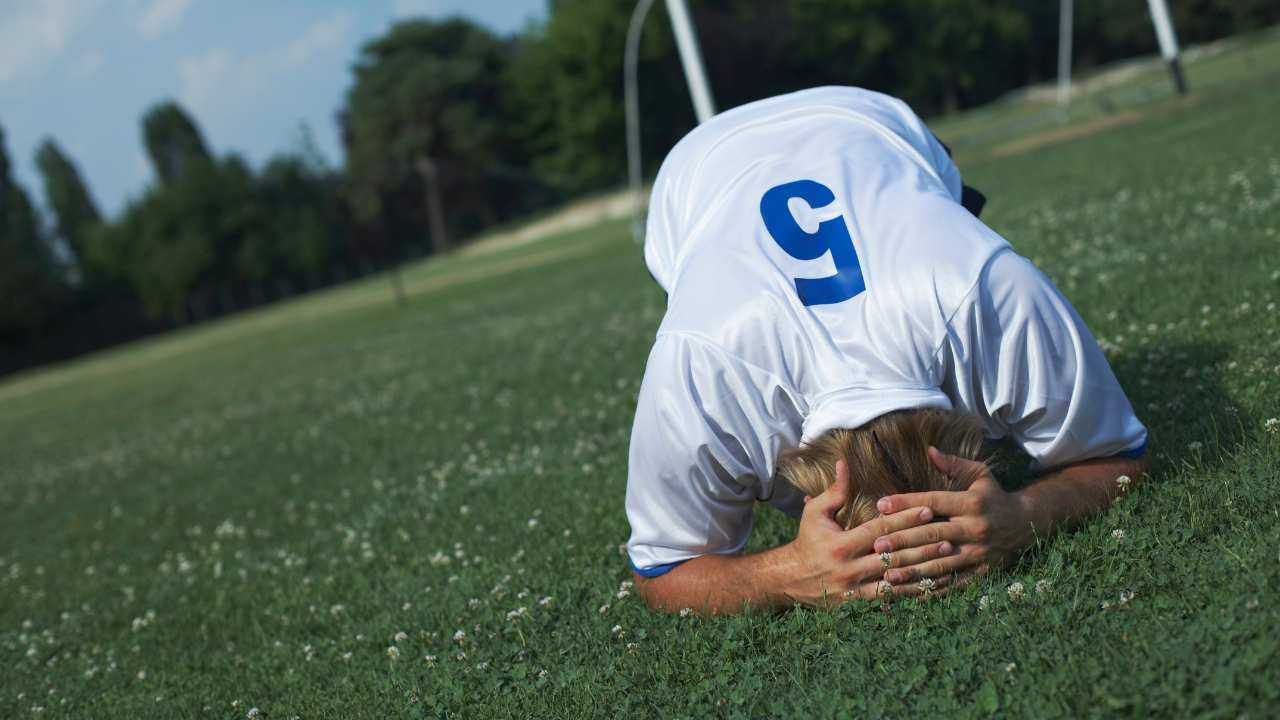7 Tips for Raising Empowered Athletes
The power of putting "we" over "me"
Kirsten Jones
| 6 min read

Kirsten Jones
What can you as parents do to model the “we, not me” philosophy of teamwork to your young athletes?
First, be on time. We’re not looking for perfection here, but it does require planning. My rule of thumb is adding 20-30 minutes to the estimated travel time. I can guarantee you you’re never going to hear a coach complain, “Yes, but she was always 30 minutes early and it was so annoying!” In fact, I often hear the opposite, because consistently showing up early is such an anomaly. “Because Jessie was always early, she was able to do extra reps and was always ready to lend a hand getting ready for practice, I not only saw rapid improvement, but was more likely to play her when the opportunity presented itself.” Thirty minutes is early. Fifteen minutes is on time. Showing up the minute practice is supposed to start is late. Be early. Every day.
Second, model a strong work ethic and effort. Focus on what you can control and let the rest go. Your child has one hundred percent control over how hard she works and how often she works.
Third, don’t “protect” yourself with excuses. NBA legend and LA Laker star Kobe Bryant famously practiced four times per day, twice what the Lakers required. “I intentionally worked out twice as much as everyone else so that mentally I knew that there was no way my opponent (or any of my teammates) was going to beat me.” My husband, Evan, was the Senior Brand Manager for Nike Basketball from 2004-2007. He once had a meeting with Kobe to talk about Bryant’s future with the Swoosh. When Evan asked him how he would explain his work ethic, he said it was simple, “There are people who have doubted me. Their doubt fuels my drive. In order to not let their hate hold me back, I created a ‘wall of pain’. Any time anyone made a disparaging comment about me, I would write it down on my wall and assign a workout to it. Not a leader: Baselines x 20… Too young: Lunges 15 x 4… Uncoachable: Tricep press 10 x 4.” And on and on. You get the idea. He reveled in the chance to add any hater to his wall. His work ethic was so strong.
Fourth, watch your body language. When I meet with teams or individual athletes and ask them to rate themselves on a scale of 1-10 on a list of things that require zero talent, “body language” always scores low. “I know I slump my shoulders whenever I don’t make the right play. I look down at the floor and I wish it would swallow me.” When I ask why they do that, most aren’t sure but when pressed admit they want their teammates (or parents) to know that they feel bad they made a mistake. “What’s the most powerful pose you can make?” I ask them. The answer may not surprise you, but it’s funny. Standing with your legs shoulder width apart, your head held high, and hands on your hips, like Wonder Woman. This is the most powerful pose you can make. In fact, it is called the “Wonder Woman” pose. And social psychologist Amy Cuddy claims that when you stand like that, it raises testosterone, lowers the stress hormone cortisol, and helps reset your brain. She argues that it leads to “hormonal changes that configure your brain to basically be either assertive, confident and, or comfortable.”
Fifth, exude energy, attitude, and passion. For those who have a goal, it’s not always about the glory that comes with it. One such example of this is from Sam Beskind, a Stanford men’s basketball walk-on who explains in an essay what it truly means to compete daily with zero guarantees of playing time: You say to yourself, “It’s going to be a long road.” Give your all, knowing it may never be enough. Turn down scholarship opportunities and instead pursue your dream. It won’t be easy, but it will be worth it. Remember your 6th grade goal, “Earn an athletic scholarship to Stanford.” Give your all, knowing it may never be enough. Lean on your family when you feel lost, discouraged, and want to go home. Arrive on campus months behind everyone else. Be unafraid by the size, strength, and speed of those around you. Embrace the nervous excitement instead of feeling fear. Each day try to find a single thing you did right, some days you won’t be able to find anything at all. When it all seems to fail, remember that your worth does not reside in performance.
Sixth, embody humility. Do you see others excel without putting in the work? Life isn’t fair my friend, learn that early; Rejoice in others’ success, don’t envy it. Be your teammates’ biggest fan. Cheer so loud you lose your voice. Read books to help embrace your role; Be a willful servant and feel entitled to nothing. Carry bags through the airport and warm-up your teammates, and do both with a smile. Embody humility.
Seventh, be coachable. Do extra and be prepared. A friend’s son was the last kid to be picked for a summer travel baseball team. The coach told him from the get-go that playing time would come hard and he was right. The kid hardly ever played. But nobody worked harder in practice. Nobody complained less. Nobody chattered more from the dugout to support his teammates. Tijuan was always first to the field. He would ask coach if he could warm up his arm with coach or get some batting practice in before the other guys showed up, knowing full well he probably wasn’t going to see the field or get a chance at bat that week. At summer’s end, in the championship tourney, a player got hurt and Tijuan was the replacement. In his first at-bat he scorched an RBI-single to right field to ignite a game-winning rally. Still, he finished the season with hardly any playing time. “Years later, my friend ran into the coach of that team. ‘You know,’ the coach said, ‘of all the kids I coached, your son was my favorite.’”
One of the themes of my book, Raising Empowered Athletes, is not just raising good athletes, but empowered people. Not just good athletes, but good sports. The type of kid who might not stand out in a box score but will be successful in whatever he or she pursues.
Mom, Dad, you can help make that happen.
Excerpted from Raising Empowered Athletes: A Youth Sports Parenting Guide for Raising Happy, Brave and Resilient Kids, by Kirsten Jones.




